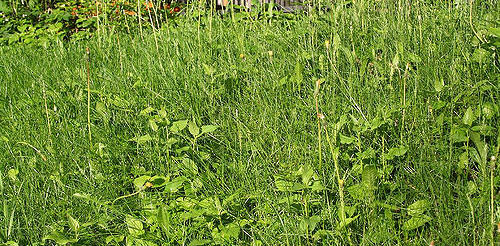Innovation Fellows Tackle City of Tulsa’s Approach to Property Code Violations | Public Radio Tulsa

The City of Tulsa sends out thousands of property code violations a year, but a new approach could change that.
Civic Innovation Fellows have come up with a way to reduce the City of Tulsa’s workload when it comes to code violations for tall grass and weeds. Most people reported for those problems just don’t know city ordinances but get the lawn mowed once they do.
The fellows propose an information campaign with brochures and trash cart stickers, reminders like door hangers when potential problems are spotted, and text notifications to a property owner when the city gets a report of a violation.
Currently, a violation reported to the city triggers a process involving an inspection, a mailed notice, then another inspection.
“As long as we’re eliminating that second trip out or mailing notices or things like that, it’s going to increase the efficiency of the whole operation,” Lowe said.
Fellows tested a text notification system last year and compared its outcomes to four previous years of code complaints over the same period of time.
“The number of complaints that were unfounded increased 24 percent for the five weeks of the fifth year, when the text notifications were being used. I think that’s pretty clear that something was happening, hopefully,” said Civic Innovation Fellow Grace Smith.
Complaints deemed by an inspector to be “unfounded” include cases of voluntary compliance — a property owner mowing the lawn before the inspector comes out, for example.
While working on the city’s code enforcement backlog, fellows discovered just 60 property owners get 10 percent of City of Tulsa code violation notices.
“It’s a significant amount of cases, but it’s a small number of people. So, coming up with interventions that incentivize good behavior and kind of disincentivize bad behavior, bad decisions were really key,” Lowe said.
Fellows haven’t figured out what those interventions are exactly for property owners who won’t cut the grass, but the finding renewed discussions among city councilors about ways to deal with troublesome investors and other owners of multiple properties with violations.
